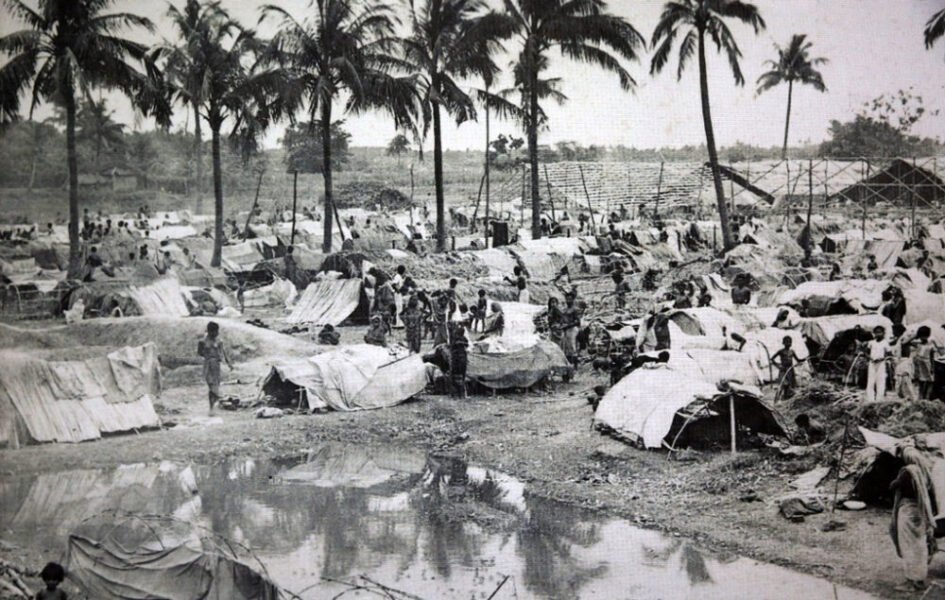The first incident was in May 1971. Dr Sarwar Ali was in Agartala along with many prominent people who had fled Bangladesh
Saudia Afrin: The road to the independence of Bangladesh is paved with numerous stories of people putting aside their own needs to help Bengalis struggling under the oppression of Pakistan.
I have recently contacted Dr Sarwar Ali, freedom fighter and trustee of the Liberation War Museum, to ask about his experiences during the Liberation War of 1971. Rather than telling tales of old battles, he felt it more appropriate to share two stories of extraordinary kindness and humanity.
The first incident was in May 1971. Dr Sarwar Ali was in Agartala along with many prominent people who had fled Bangladesh.
At the time, the Mujibnagar government had decided to send a team to the Hungarian capital Budapest to attend the World Peace Council Summit. The delegation would be the first representatives of the Mujibnagar government at an international conference.
Abdus Samad led the delegation, which included Deoyan Mambub Ali, and Sarwar Ali. The team would first travel from Agartala to Kolkata and stay there for a few days for several preliminary briefings, before a final briefing in New Delhi ahead of leaving for Budapest.
There was only one flight per day from Agartala to Kolkata in 1971, and it was always in heavy demand. The alternatives for travel were bus or train, which meant a journey of around 48 hours.
On the day that they were set to depart for Kolkata, Sarwar Ali’s participation in the entire endeavour was thrown into uncertainty. Just as he was about to board the aircraft, an air hostess notified him that his seat had been given to a high official of the Indian Ministry of Relief in Agartala who needed it for an emergency.
“The stairs of the aircraft went up and I was just standing there, in agony over being deprived of such an opportunity to contribute to the Liberation War,” Sarwar Ali said.
Suddenly, the stairs came down again. The air hostess asked him if he was one of the members of the Bangladesh delegation, and he nodded.
“She asked the pilot if I could go on the plane, and he agreed. I was ready to sit on the floor if I had to, but the air hostess offered me her seat and stood for the entire way.”
Sarwar Ali tried to return her seat, but the air hostess insisted that he sit there.
“The Agartala to Guwahati route was heavy with turbulence due to the geography. She said she had had experience dealing with this, so she would stand,” he said.
The second incident took place after Sarwar Ali’s return to Agartala. His wife and baby daughters had immediately fled Bangladesh for Agartala after his speech in Budapest had been broadcast on Akashvani and Swadhin Bangla Betar.
For the first few months, Sarwar Ali would buy milk from a nearby shop on a street corner. The shopkeeper realized that Sarwar was a refugee when he saw him wearing his check-printed lungi.
“After that, the shopkeeper never took money for the milk from me again,” the freedom fighter said.
Sarwar Ali was greatly touched by these two incidents.
“Even if these incidents seem trivial, they illustrate how ordinary Indians helped us during the Liberation War. I think it shows general Indians’ wish for Bangladesh’s independence and their empathy towards us, we who belonged to a war-torn country,” he added.

